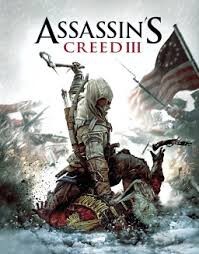
By Andrew Gardewine, Contributing Writer
Lebanon, Ill. – Many people don’t consider video games to be a legitimate source for learning. Video games have been given the label as a form of leisure-time play, are considered childish and are seen as something that people eventually grow out of in order to pursue more serious ventures. Play is considered something done in order to release tension and blow off steam to help focus on work ahead.
In his essay ‘The Rhetoric of Video Games,’ Ian Bogost uses school recess as an example to relate video games to something people use to blow off steam. “Children learn while seated in desks, listening attentively to a teacher or reading from a book. This sort of valid learning is interrupted by recess, where children are allowed to play. Understood in this way, play is a distraction useful only to let off the necessary steam to allow kids (or adults) to get back to the serious business of learning (or working),” Bogost said. Video games are similarly seen as a mere distraction for people to help them release tension and allow them to refocus on learning.
To many people, video games are much more than distractions. Video games have unseen potential that has not been completely realized or tapped into yet. The potential ability video games have to teach is remarkable, whereas sitting in a lecture for hours can be mind-numbing. If video games could reverse their classification from leisure activities to teaching and applying techniques, the world of learning could be drastically changed.
Now, I’m not saying that every class known to man can be taught through video games. What I am saying is that the possibility of certain classes utilizing video games as classwork or homework could bring many benefits. For instance, an ethics class could possibly learn ethical values with games such as Spec Ops: The Line, Bioshock, and Grand Theft Auto as their focus. In each of the games, the protagonist is considered the good guy, however many of their actions reflect otherwise.
Many different scenes in each game feature decisions the main character(s) must make; some decisions are easy, while some are morally taxing. From torture and bank robbery to deciding which (if any) of the main characters should die, Grand Theft Auto players are left with some decisions that debate morality. Each of these critically acclaimed games are engaging and have rich story lines. Therefore, the ethical values of the characters in the games would make great topics of discussion.

These three games would also be beneficial for psychology students. In Grand Theft Auto, one of the main characters, Trevor Phillips, has many psychological problems that attribute to his violent actions. Students could play the game, observe his actions and try to figure out what factors contribute to his psychological issues.
In the game Spec Ops: The Line, the main character, Captain Martin Walker, experiences hallucinations as the game progresses. Walker suffers from PTSD (Post Traumatic Stress Disorder) and kills many people due to his hallucinations. In order to rationalize his actions, his mind leads him to believe his old ally, Colonel John Konrad, is the person responsible for his killing of innocent people. This game would be a good resource to teach students the psychological aspects of war, and whether or not the representation is accurate.
In games like Call of Duty, Battlefield, Assassins Creed and Medal of Honor, players can learn many different aspects of history. Each Assassins Creed game is based on true events and features real people throughout history. Players live out major historical events, and sometimes play as the character who creates those events.
Because these games are centered on major wars, they would be ideal for history classes. Players learn about different battles, weapons, vehicles and people that fought in these wars. In one of my high school history classes, I specifically recall being asked a question about a certain battle during the American Revolutionary War and can attribute my remembering of the answer to Assassins Creed 3.

Rhetoric classes could study themes and aspects present in video games in order to understand why developers chose different characters and settings to tell their story. Students would analyze these aspects to help understand rhetorical themes and figure out how they contribute to the game’s success or failure.

Based on their success from interesting stories and game play, game developers could likely create more games that could be beneficial in other classes. For instance, a company could make a racing game that allows for creations of vehicles from scratch in order to teach students going into the mechanical field. By showing how vehicles work and how they are put together, students will learn valuable lessons about problems mechanics face. With the great success of racing games like Need for Speed and Forza, gaming companies could likely make a game just as engaging that also helps teach players about the mechanical aspects of vehicles.
Will video games ever be a part of the main curriculum for the majority of classes? Probably not. However, there is always hope in looking forward to future possibilities and the potential video games have in the world.